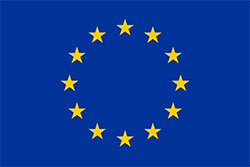Quadragesimo Anno is one of the most important encyclicals of Catholic thought. After the first social encyclical that changed the Church’s relationship with the world, Rerum Novarum, Pius XI revisited these ideas 40 years later. One of the most influential thinkers in this encyclical was Heinrich Pesch (1854-1926), a German Jesuit and founder of the Solidarist School.
The great contribution of the German Jesuit was to develop a social and economic system around the principle of solidarity[1], trying to find a “third way” between socialism and individualistic capitalism[2]. Solidarism is a social philosophy derived from the natural law tradition that claims to be the proper interpretation of human nature and the philosophical-social and economic conclusions to be drawn from it[3]. This development also responded to the objective of systematizing the incipient Social Catholic Teaching that was being forged at the time, proof of which is the aforementioned influence of Pesch’s work in Quadragesimo Anno.
The principle of solidarity constitutes a fundamental pillar in the Social Catholic Teaching that has two dimensions: being a social principle and being a moral virtue. Solidarity as a social principle has the value of ordering institutions towards the common good[4]. Solidarity in Pesch’s words is “social interdependence and real reciprocal dependence among people”[5]. In this way, he develops an economic philosophy focused on applying solidarity at all economic levels: between employee and employer, between citizens of the same state and between different nations[6].
This solidarity is materialized in harmonizing individual welfare with the common welfare. A system that contemplates that the market and private property are legitimate and useful tools for economic development but must be subject to ethical principles that prevent abuse. These principles are the obligations of citizens to society, of society to its citizens or of citizens to each other as individuals, respectively: legal justice, distributive justice, and commutative justice[7].
For practical purposes, this theory is embodied in certain positions that are still relevant today. In the first place, Pesch defended the limited action of the State based on the principle of subsidiarity, its role being to reach where people, by their own personal capacities, cannot reach. Instead, he proposed orderly protection of their rights, effective assistance, and complementarity of their needs with the power that the citizens of a State have when they act in concert[8].
Secondly, for Pesch private property, derived from natural law, has both economic and moral value and is subject to certain obligations. In his own words:
“There is no “right” which, as such or in the ownership and acquisition of material goods in the way it is exercised, is independent of the moral order operating in the world”[9].
Finally, a fundamental issue for Pesch is the relationship of the employer to the employee. In Rerum Novarum, Pope Leo XIII addresses the workers’ question with an impassioned defense of the inalienable dignity of workers[10]. This spirit is picked up by Pesch affirming the idea of a just and equitable cooperation between both parties. Pesch advocated an economic system in which workers received fair wages and adequate working conditions, and in which employers assumed their social responsibility towards their employees. This position constitutes one of the pillars on which Pius XI would rely in writing Quadragesimo Anno.
The importance of Pesch’s work lies in his ability to systematize the essence of the Social Catholic Teaching in an economic system that starts from the natural law and places the person at the center. In the words of Pope John Paul II in Sollicitudo Rei Socialis “the exercise of solidarity within each society is valid only when its members recognize one another as persons”[11].
[1] Ederer, J. Rupert, Heinrich Pesch, Solidarity, And Social Encyclicals, 1991, Review of Social Economy, 49:4, 596-610. Available at: https://doi.org/10.1080/00346769100000050
[2] Ronheimer, Martin, Market Capitalism and Christian Social Ethics: A Contradiction?, 2019, Austrian Institute Paper Nr. 27, p.2. Available at: https://austrian-institute.org/wp-content/uploads/2020/02/Rhonheimer-Market-Capitalism-and-Christian-Social-Ethics-Ai-Paper-27-2019.pdf
[3] Koslowski, Peter. Solidarism, Capitalism, and Economic Ethics in Hienrich Pesch, 2000, The Theory of Capitalism in the German Economic Tradition. Studies in Economic Ethics and Philosophy, Springe. Available at: https://doi.org/10.1007/978-3-662-04084-3_10
[4] DSI
[5] Ederer, J. Rupert, John Paul II, Hienrich Pesch and the Christian Virtue of Solidarity, 1997, Faith and Reason: The Journal of Christendom College, Vol. XXIII, No. 2. Available at: https://media.christendom.edu/1996/06/john-paul-ii-heinrich-pesch-and-the-christian-virtue-of-solidarity/
[6] Messner, Johannes, Hienrich Pesch, Das Neue Reich, 1926, vol. 8.
[7] Ederer, J. Rupert, John Paul II, Hienrich Pesch and the Christian Virtue of Solidarity, 1997, Faith and Reason: The Journal of Christendom College, Vol. XXIII, No. 2. Available at: https://media.christendom.edu/1996/06/john-paul-ii-heinrich-pesch-and-the-christian-virtue-of-solidarity/
[8] Pesch, Heinrich, S.J., Ethics and the National Economy, 2004, HIS Press, Norfolk, VA, P.52.
[9] Ibid, p.75.
[10] Pontifical Council for Justice and Peace, Compendium of the Social Doctrine of the Church, Biblioteca de Autores Cristianos, 2019, p. 138 (n.268).
[11] Pope John Paul II, Sollicitudo Reis Socialis, The Holy See, 1987, n.39. Available at: https://www.vatican.va/content/john-paul-ii/es/encyclicals/documents/hf_jp-ii_enc_30121987_sollicitudo-rei-socialis.html








